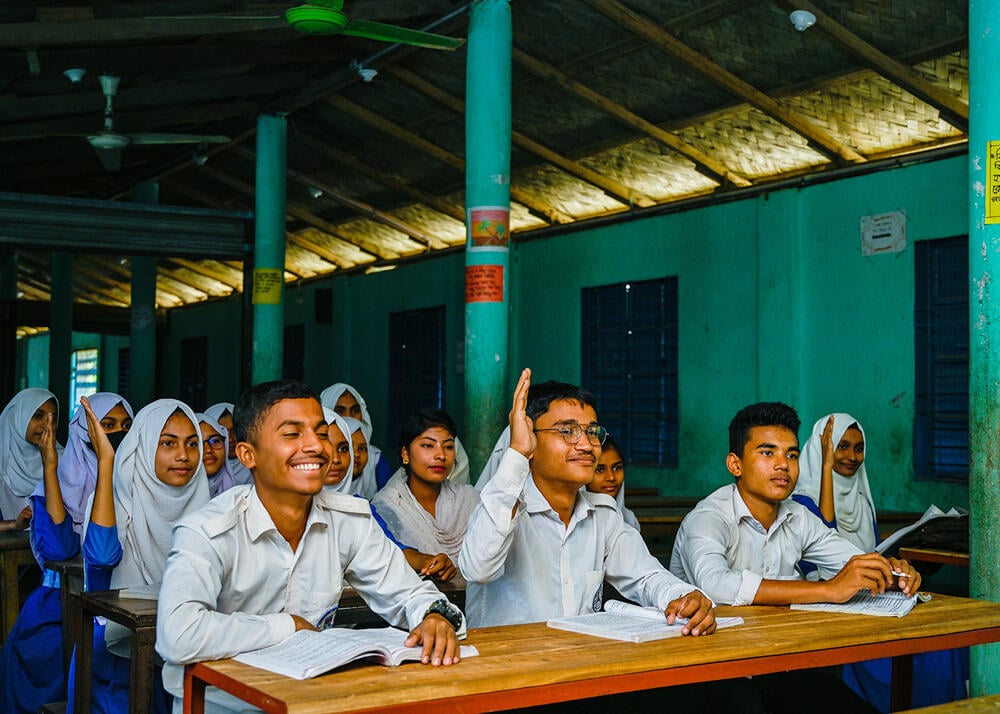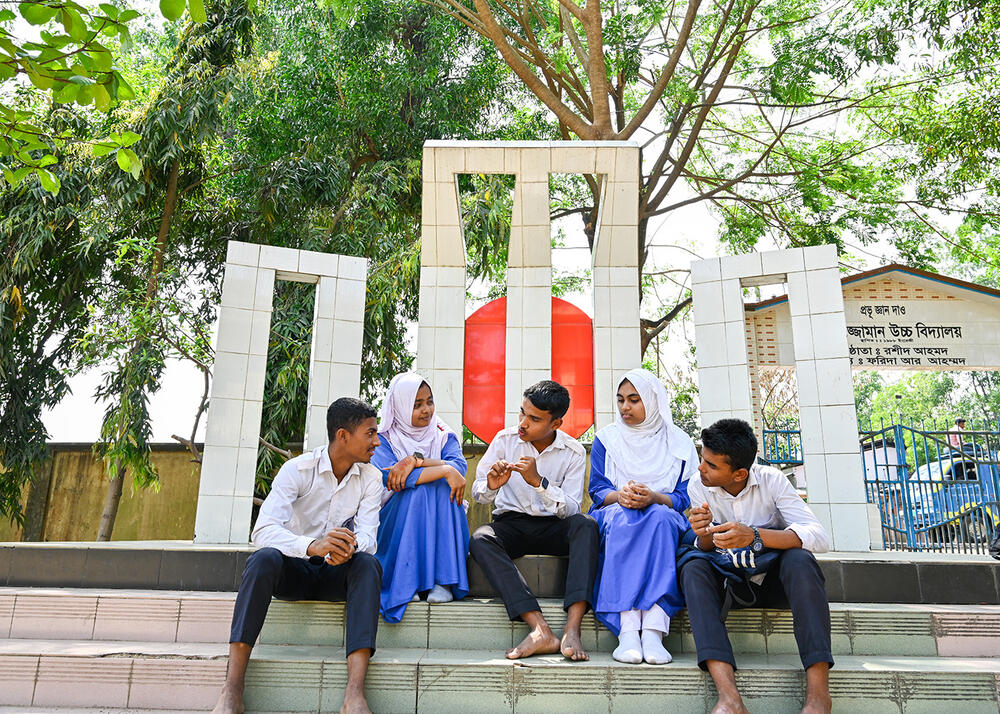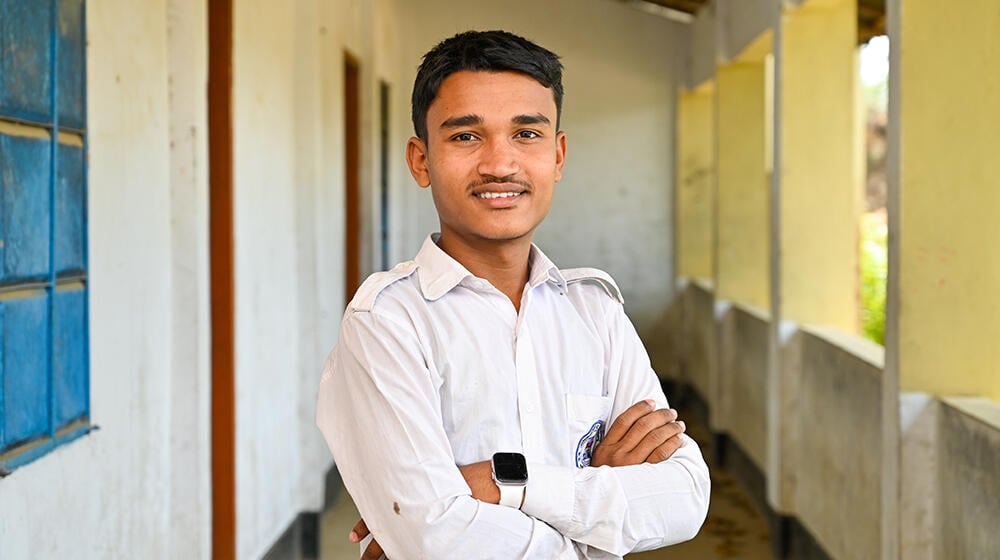Abu, a 16-year-old student from Ramu Upazila of Cox’s Bazar district, describes his participation at a Gender Knowledge Camp – as a “turning point” in both his academic and personal life.
Growing up in a busy household of six, Abu watched his mother raise livestock and work on her homestead garden to support the family’s income. When he was a teenager, he witnessed his sister entering the workforce, shoulder-to-shoulder with the men in the family. Yet, Abu readily admits that he once downplayed, or at the very least, undervalued the contributions these women made to their family’s wellbeing.
Abu's self-professed curiosity for knowledge would, however, drive his transformation into a vocal advocate for gender equality soon – a reputation that would eventually surpass the boundaries of his own village.
Two years ago, when his school hosted a Gender Knowledge Camp targeted at promoting gender equitable attitudes among school-going students and empowering them to make informed sexual and reproductive choices, Abu seized the opportunity to participate in the days-long camp.

In the subsequent competitions held as part of the Gender Knowledge Camp, he excelled, and even stood first in the quiz competition, having demonstrated a deep understanding of positive social and gender norms.
"There was a time when I did not even recognize all that my mother does for our family as ‘work.’ I also believed that being a traditional housewife was her natural role – that it was only natural for women and girls to do housework and marry young.” This powerful shift in mindset eventually triggered ripples of change in him.
Abu now actively advocates for shared household responsibilities, emphasising that "everyone in the family should pitch in, men and women alike,” and that everyone regardless of gender is entitled to freely make choices about their bodies, health, education and work. He consistently credits his family, particularly his father's consistent support, for this transformation.
“I used to look down on the changes I witnessed in my body after hitting puberty. And I did not have anybody to discuss these matters with,” Abu reflected on feeling vulnerable and alone. “The sessions focused on sexuality education at the Gender Knowledge Camp helped me come to terms with the changes in my life.”
Soon after, Abu started hosting informal gatherings, inviting other boys in his community. Over time, his influence grew to such an extent that when a girl faced a potential child marriage in a nearby village, the boys there sought him out for guidance. Abu taught them how to access the emergency support services, including the toll-free hotline numbers.
These informal gatherings additionally provided a platform for boys his age – about to embark on young adulthood – to discuss their common anxieties about growing up, address the pressures of masculinity, and explore the questions of who they were and who they wanted to be.

When asked to describe an ideal society, Abu, who dreams of becoming a doctor one day, paints a picture both simple and profound: a sturdy cart, pulled forward by two strong wheels, representing men and women. Without one, the cart would collapse, let alone move forward. However, together, imagine the formidable journey! The speed, the distance they could cover together! That is the future Abu sees – a future where we all stand as equals, pulling in unison to pave the path for a brighter, more equitable tomorrow.
With World Bank’s funding and UNFPA's technical support, the Ministry of Health and Family Welfare launched the Health and Gender Support Project in 2021 in the Cox’s Bazar district, resulting in thousands of men and boys across Cox’s Bazar joining the effort to eliminate gender-based violence and harmful practices.


